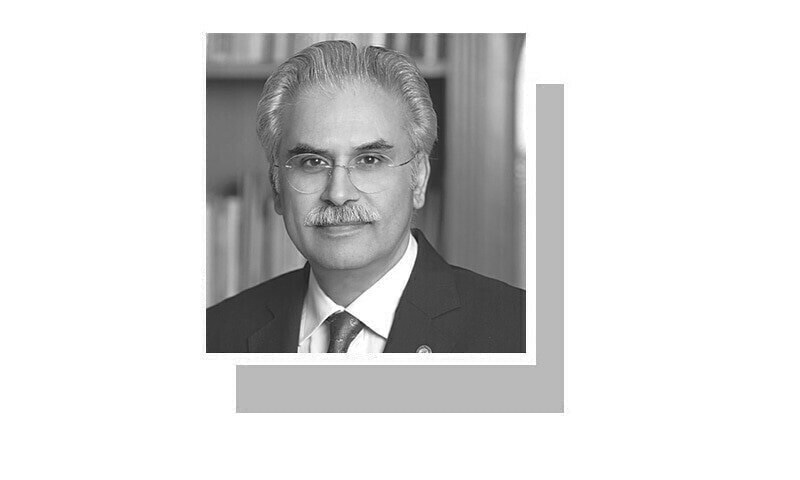AS part of a researchers’ team we have recently published a paper on ‘Doctors taking bribes from pharmaceutical companies is common and not substantially reduced by an educational intervention: a pragmatic randomised controlled trial in Pakistan’. It was published last week in the British Medical Journal Global Health. Since most readers don’t follow peer-reviewed medical journals and since the issue is of paramount importance to all of us in Pakistan, I thought of sharing the findings of this research with the readers of Dawn.
Before dwelling on this research, for the regular readers of my column, I would refer to another article I wrote on these pages with the title ‘An unholy alliance’, published on December 3, 2021. The current research is actually an evidence-based scientific testimony of what I wrote then. The article started thus: “There is an unholy alliance working against the interests of patients. Highly unethical dealings go on between the pharmaceutical and health technology industry and doctors and other health professionals.” I further wrote: “The word ‘unethical’ hardly conveys what is going on in the medical marketplace.”
The current research is led by Mishal Khan based at the London School of Hygiene and Tropical Medicine, also my alma mater, and 17 other researchers, most of them at AKU Karachi. A novel method was used whereby data collectors posing as pharmaceutical company sales representatives visited private doctors to see their engagement with incentive-linked prescribing. Incentive-linked prescribing is a sugar-coated phrase for accepting, and often demanding bribes for prescribing specific medicines to patients regardless of their need.
The collusion between doctors and industry is well-known, widespread globally and deeply entrenched.
In this research 419 medical doctors, mostly general practitioners, providing primary healthcare in their private clinics in Karachi, were enrolled by taking their consent to participate in this study, which meant they agreed to ‘unannounced assessment’ of their practice. These doctors were randomly assigned to “intervention” and “control” groups, 210 to the former and 209 to the latter. Those in the intervention group were systematically engaged in multifaceted educational interventions through which they were informed about the problems associated with pharmaceutical incentives. They participated in a well-designed educational seminar on ethical prescribing followed by reinforcement messages over six weeks and they took part in a related slogan-designing competition.
In the control group they were given an inert or placebo seminar in which unethical prescribing was not included as a topic of discussion. Three months after these seminars and reinforcement interventions the doctors were visited by the covert ‘pharmaceutical company representatives’. The primary outcome was the proportion of participants agreeing to accept incentives in exchange for prescribing promoted medicines. Once all the data was collected, results were disappointing.
In the control group among those who participated, 41.9 per cent of doctors agreed to accept incentives in exchange for prescribing promoted medicines, as compared with 32.3pc in the intervention group. Statistically speaking this difference is not significant, which in simple terms means that engaging doctors and educating them about the problems of pharmaceutical incentives alone does not change their practices.
The majority of private doctors who agreed to accept incentives for prescribing promoted medicines opted for a financial incentive, such as cash or cheque payment, followed by clinical equipment or renovation. Interestingly, in many cases those who refused to accept incentives were in fact already fully committed to incentive agreements with other pharmaceutical companies.
This first study to covertly assess deal-making between doctors and pharmaceutical company representatives demonstrated that the practice is strikingly widespread and suggested that substantial reductions are unlikely to be achieved by educational interventions alone.
The research has shown the obvious but by using a scientific method and statistically calculating the results. The phenomenon of collusion between doctors and industry however is well-known, widespread globally and deeply entrenched.
To understand the scale of the problem, in 2020 the Journal of the American Medical Association reported that 26 pharmaceutical companies paid around $33 billion in fines between 2003 and 2016 in the US. These fines were slapped by the US authorities on account of various illegal activities, such as providing kickbacks and bribes, knowingly shipping adulterated or contaminated drugs to pharmacies, and marketing drugs for unapproved uses.
Closer to home, the forms and shapes medical marketing takes have become so heinous, pervasive and damaging that the less said the better. The so-called medical conferences in Pakistan are basically the medical community basking in luxury and glory, dining and wining, and pharmaceutical companies happily footing the hefty bills. Patients and their families pay through their nose the unaffordable prices of the medicines, many a times fraudulently prescribed to them. Poor people suffer the financial and physical consequences.
Now that prices of medicines in Pakistan have been deregulated, they have skyrocketed. Marketing budgets will further go up, competition to sell will become more fierce and new lows in unethical marketing practices by the companies will be witnessed.
This is the principal contradiction of the medical profession. Greed has replaced care. The real moral of the story of this research is that any amount of education and research will not make any difference as the medical practitioners are part of the society which suffers from a deep moral crisis.
What to do about this seemingly complex and insurmountable problem which is systemically entrenched in unbridled corporate capitalism? All countries suffer from this menace, the difference is that of scale and shamelessness. A cocktail of measures — educational, managerial, regulatory — need to be taken and interventions need to be made simultaneously and sustainably. Continued research, like the one quoted above, needs to be encouraged and undertaken. And, lifestyle medicine and preventive healthcare need to be promoted, which require least pharmaceutical use.
The writer is a former health minister, currently a professor of health systems & population health at Shifa Tameer-i-Millat University.
Published in Dawn, January 24th, 2025
- Desk Reporthttps://foresightmags.com/author/admin/










